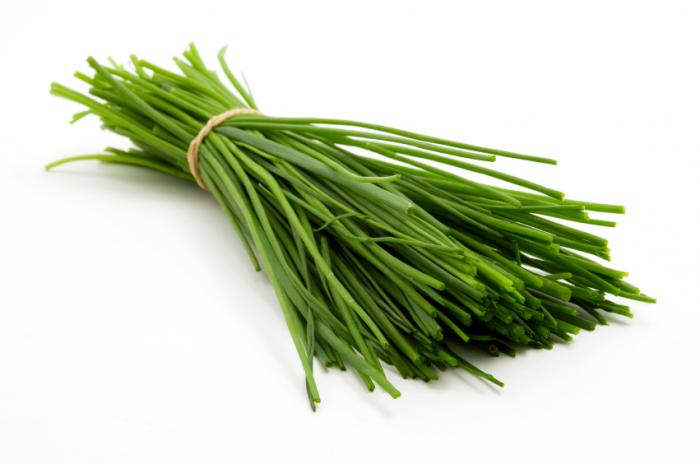Chives are part of the allium family of vegetables and herbs, which also includes garlic, scallions, onions and leeks. Allium vegetables have been cultivated for centuries for not only their characteristic, pungent flavors but also for their medicinal properties.
This MNT Knowledge Center feature is part of a collection of articles on the health benefits of popular foods. It provides a nutritional breakdown of chives, an in-depth look at the possible health benefits of consuming chives and discusses ways to incorporate more chives into your diet.
Nutritional breakdown of chives
Chives are a nutrient-dense food, meaning that while they are low in calories they are high in beneficial nutrients like vitamins, minerals and antioxidants. One tablespoon of chopped chives contains 1 calorie and 0 grams of fat, 0 grams protein and 0 grams of carbohydrate while providing 3% of the daily value of both vitamins A and C. One serving of chives also contains a small amount vitamin K, folate, choline, calcium, magnesium, phosphorus and potassium.
Possible health benefits of consuming chives

Chives are a nutrient-dense food, meaning that while they are low in calories they are high in beneficial nutrients like vitamins, minerals and antioxidants.
Cancer: Allium vegetables have been studied extensively in relation to cancer, especially stomach and colorectal cancers. Their beneficial and preventative effects are likely due in part to their rich organosulfur compounds. Although the exact mechanism by which these compounds inhibit cancer is unknown, possible hypothesis include the inhibition of tumor growth and mutagenesis and prevention of free radical formation.5
Prostate cancer: In a study published by the Journal of the National Cancer Institute, researchers used a population-based, case-controlled study to investigate the relationship between allium vegetable intake and prostate cancer. They found that men with the highest intake of allium vegetables had the lowest risk for prostate cancer.2
Esophageal and stomach cancer: Frequent intake of allium vegetables such as chives has been inversely related with the risk of esophageal and stomach cancer.3 Several survey-based human studies have demonstrated the potential protective effects of consuming alliums, as well as reports of tumor inhibition following administration of allium compounds in experimental animals.
Sleep and mood: The choline in chives is an important nutrient that helps with sleep, muscle movement, learning and memory. Choline also helps to maintain the structure of cellular membranes, aids in the transmission of nerve impulses, assists in the absorption of fat and reduces chronic inflammation.6 Folate, also found in chives, may help with depression by preventing an excess of homocysteine from forming in the body, which can prevent blood and other nutrients from reaching the brain. Excess homocysteine interferes with the production of the feel-good hormones serotonin, dopamine, and norepinephrine, which regulate not only mood, but also sleep and appetite as well.7
How to incorporate more chives into your diet

Chives pair well with many dishes, especially those with eggs and cheese such as omelets, scrambles, quiches and frittatas.
Adding chives is a great way to add flavor to a dish without adding extra calories, fat or sodium. Chives are a tender herb (along with cilantro, mint and basil) that have gentle stems and are best to add either raw or near the end of cooking in order to maintain their delicate flavor and texture. Chives are easy to grow and can even be grown in small pots on a sunny windowsill.
When preparing chives, use a sharp knife and cut gently. Using a dull knife or over-chopping will bruise the herb and much of the flavor will be misplaced onto the cutting board surface.1
Chives pair well with many dishes, especially those with eggs and cheese such as omelets, scrambles, quiches and frittatas. They’re also great with creamy vegetable dips and as a topping for soups and salads.